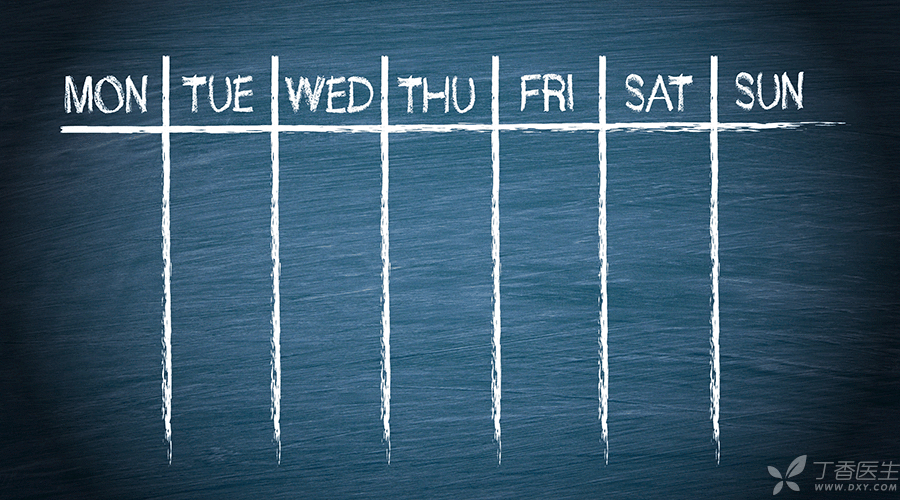
When watching third-rate Korean dramas or domestic idol dramas, there will always be a healthy person who suddenly finds out the incurable disease, but the vast majority of screenwriters only know how to use leukemia or cancer to make up the number…
Then the next sentence is often:
[Why is this so? …]
Ah, no, that’s not the point.
[… Doctor, how long can I live? ]
How does the doctor know how long he can live if he is ill?
When the patient asks the doctor [how long can I live], the doctor will look at his computer-of course, the screen is turned away from the patient and he will not see it-and there is a crystal ball in the computer. After entering a complicated spell, it will show the remaining life span. This is called [high-tech fortune telling].
Alas, how can this be true… doctors are not prophets, on the contrary, doctors are hindsight.
Everything is based on completed research or statistics.
The [crystal ball] showing myriad changes in the computer is actually a literature database of all medical research over the past few decades. The spell entered is called [prognosis]. Of course, the spell cannot be so simple that one can understand it at a glance, can it? So the doctor typed [prognosis]. (Don’t think you don’t know it in English…)
Whether you have a cold or an incurable disease, you can infer the consequences of the disease development based on the existing data and experience-for example, complete cure, or sequelae, or long-term medication can maintain health, or [can live for another two years]-these are all [prognoses].
Therefore, if the doctor says to the patient [he can still live for two years], what he actually means is [according to a long period of time and a large number of studies, people with similar conditions and similar conditions in all aspects can live for an average of two years. Therefore, doctors can only speculate that with this kind of tumor, after the most reasonable treatment at present, they can live for about two years. But in fact it may be longer or shorter than two years…]
How can you be so punctual?

Why can’t the doctor say how long the patient can live?
Of course, for one reason or another, in recent years doctors generally do not say to patients [how long can you live], but only tell them [how long can patients with this tumor live on average]. Therefore, although what may not have been terminally ill, the world in TV plays is still much better than reality…
However, the doctor could not say how long he could live. Everyone is different, and the factors that affect the prognosis are that they cannot be counted from head to toe. Maybe if there is any change, they will live a few months less.
So, what are the common factors affecting prognosis?
1. Type of tumor
For example, after 5 years of 100 patients with differentiated thyroid cancer, there may be about 95 people living well. If there are 100 liver cancer patients, there may be less than 10 left in 5 years…
2. Staging of tumor
What we often say about [early] or [late] is about the staging of tumors (of course, the statements about early and late are not so rigorous); It depends on the size of the tumor and whether metastasis occurs to judge the extent to which the tumor has attacked what. Generally speaking, early cancer will live longer than advanced cancer.
Take gastric cancer as an example. Cancer spreads in the stomach like attacking a city: early cancer may just swim through a moat (invading the shallowest layer of gastric mucosa), while late cancer has already torn down the city wall (passing through the muscles of the stomach wall) and even mixed up to other places along the city’s transportation routes (metastasized).
3. Tumor grading
It is to look at the appearance of tumor cells in what under a microscope to judge how fast the tumor is going to attack.
4. Certain specific proteins in tumor cells
There are some special [markers] in tumors, which can indicate the growth rate of tumor cells.
5. Health status of patients
The younger and healthier the body, the more advantages it will have in quality of life and treatment programs.
6. Treatment
Standardized treatment methods have been confirmed by studies of at least hundreds of people and can really improve survival rate, instead of [Lao Wang’s second uncle next door found someone to prescribe a cure].

How can we live longer?
1. Early detection and treatment
Early cancers are far better than advanced cancers in terms of treatment difficulty and therapeutic effect. Regular physical examination is an effective method to find early asymptomatic cancers, but not all early cancers can be detected through physical examination.
Step 2: Build up your physique
Reasonable nutrition and adequate exercise can effectively strengthen physical fitness and reduce the occurrence of cancer. Even if you have cancer, you will benefit from [good physical foundation], such as better tolerance to chemotherapy.
3. Receive regular cancer treatment
Improving the survival time of cancer patients is one of the key points to measure various cancer treatment plans. In regular hospitals, cancer patients will receive treatment according to the requirements of the guidelines, which are formulated with the support of a large amount of data. This is the correct treatment attitude. However, there is no basis for those [ancestral remedies] [radical cancer].
Moreover, not all cancers are so terrible that there is no need to turn pale at the mention of cancer.
